
Articles for teachers and educators
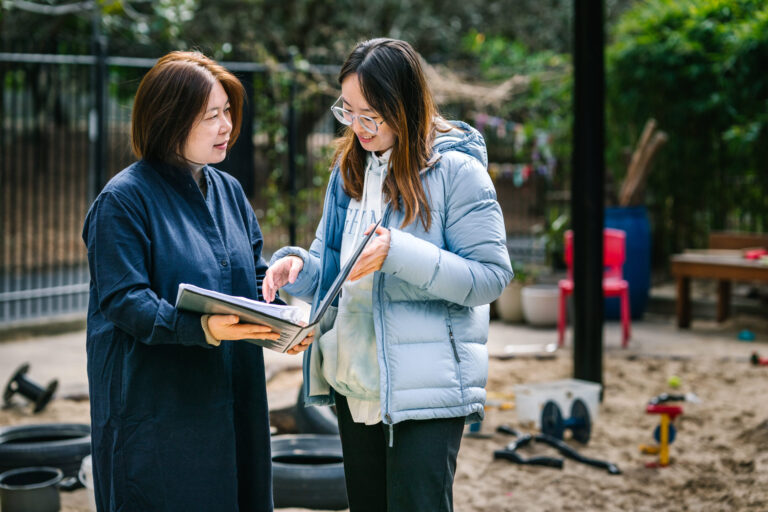
Why professional development
When educators participate in rich professional development, they are better able to contribute to the ongoing growth of their own practice and the practices within their service.
Jan Faulkner explores the benefits of engaging in a meaningful program of professional learning and how to develop an effective professional learning plan.
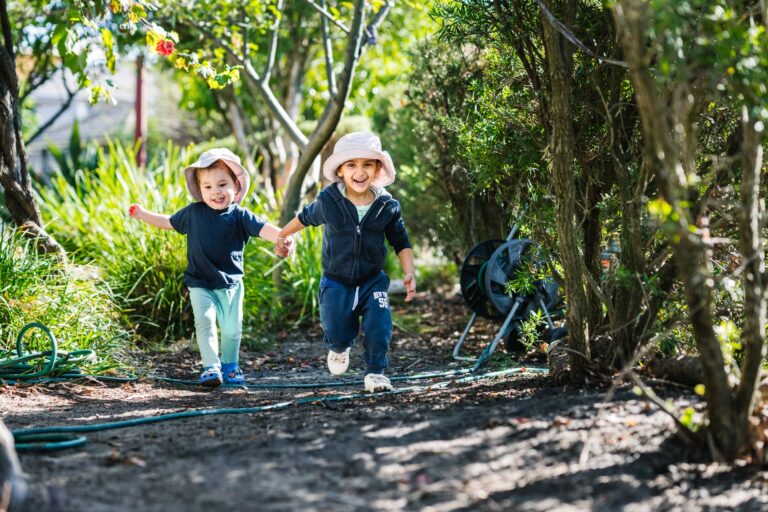
Nature’s playground: why nature pedagogy matters
Nature pedagogy is not just a passing trend – it is a necessary response to growing concerns about children’s wellbeing.
Fiona Harris discusses how nature-rich environments offer unique opportunities for sensory-rich, imaginative, and inquiry-based play.
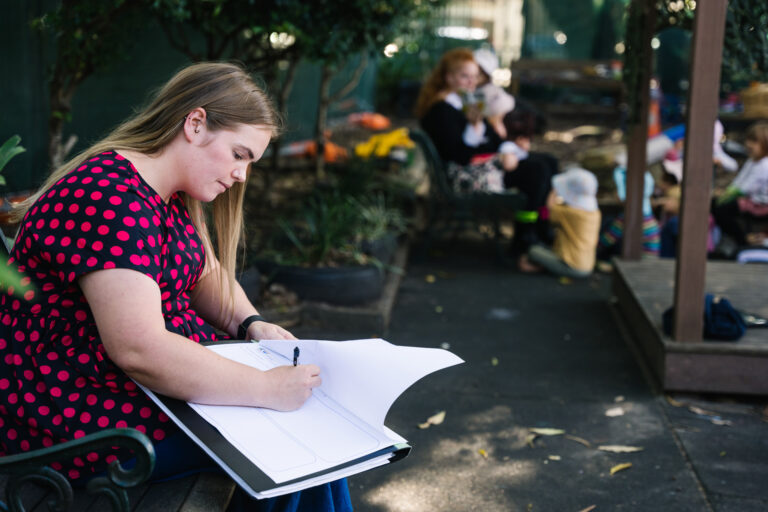
What should we be documenting?
Sometimes documentation can seem like a heavy load, but if we are clear about why and what we document, we can create an exciting window into learning and teaching.
This article explores the why, what and how of documentation.
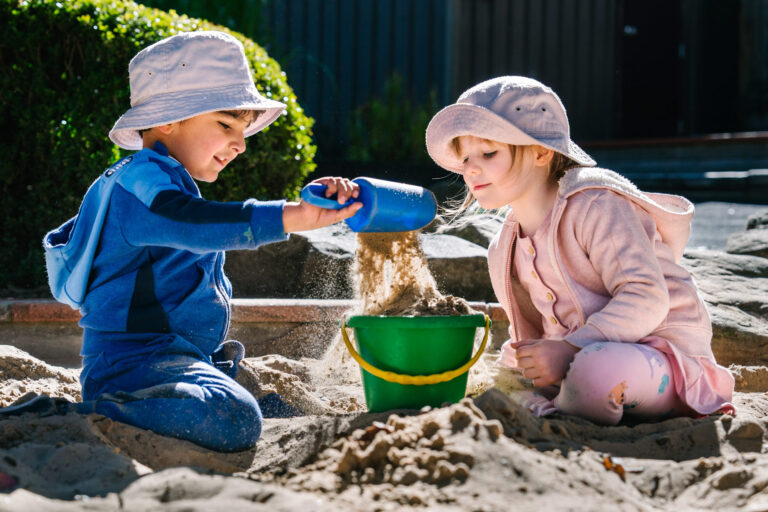
The quintessence of play: what can we learn from children?
Play is freedom, full of joy, a time for learning, and critical to our lives.
Fran Bastion invites us to consider the simplicities as well as complexities of play and to contemplate its role in early childhood programs.
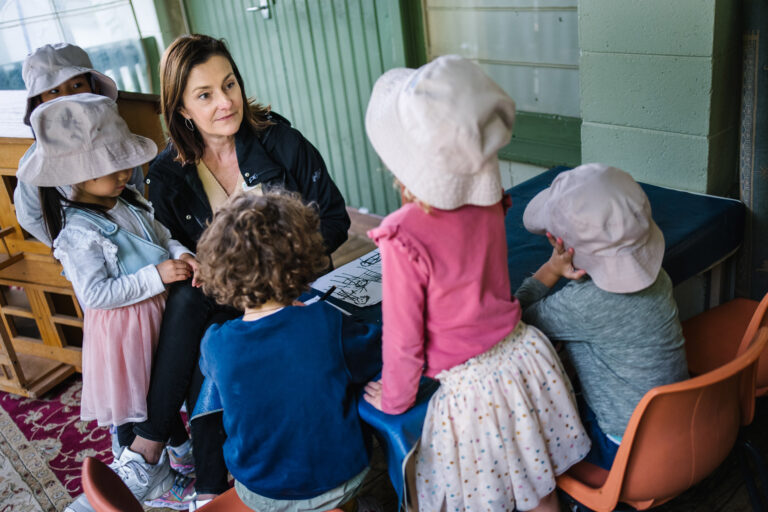
Attuning yourself to children’s invitations for connection
Keran Elgie explores the importance of building strong authentic relationships with children, highlighting how emotional wellbeing is supported by educators who are attuned to children in ways that make them feel seen, heard and valued.

Thinking about Lunar New Year – a critical reflection
Kristina Grana reflects on recent practice, recognising the value of embracing vulnerability, starting conversations and exploring biases, to evaluate and step forward with new understandings.
She shares how she and her team examined their approach to cultural celebrations, offering valuable insights from their journey.
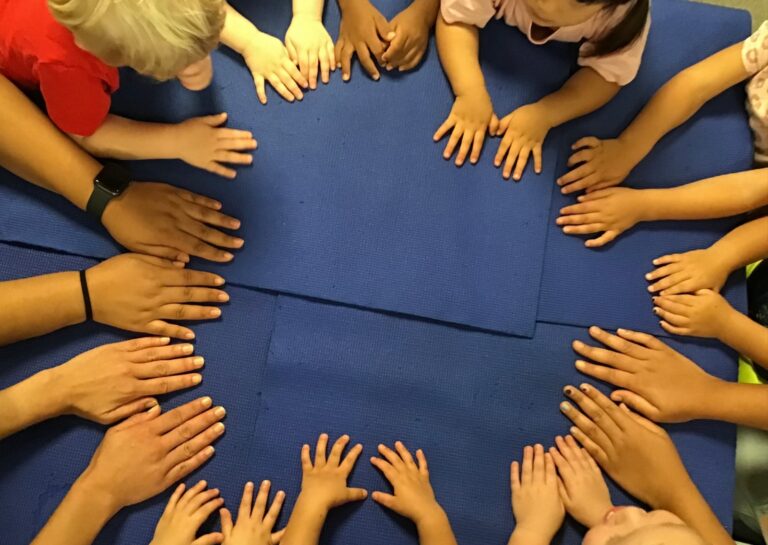
The contemporary child in a contemporary world
This article focusses on one teaching team who, through the practice of critical reflection, can provide children with opportunities to share their insights, challenge injustice and promote equity.
This is an example of children and adults working in companionship as teachers and learners in celebrating and reflecting on the meaning of Harmony Day.
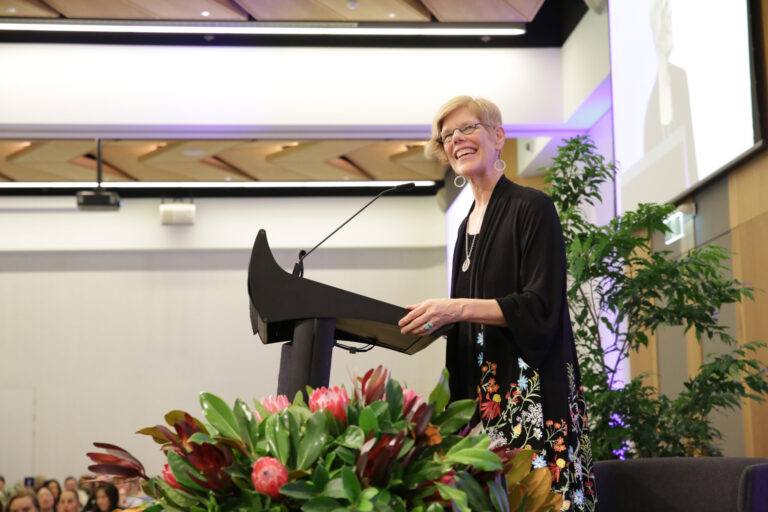
Reflections on re-imagining our work
In March 2024, KU invited internationally renowned thinker and writer Ann Pelo to give the Keynote address at the KU Annual Conference.
Fran Bastion recounts that her message was a call to action for educators to demand a more generous and far-reaching vision of education. Read Fran’s reflections on the key messages from Ann’s address.
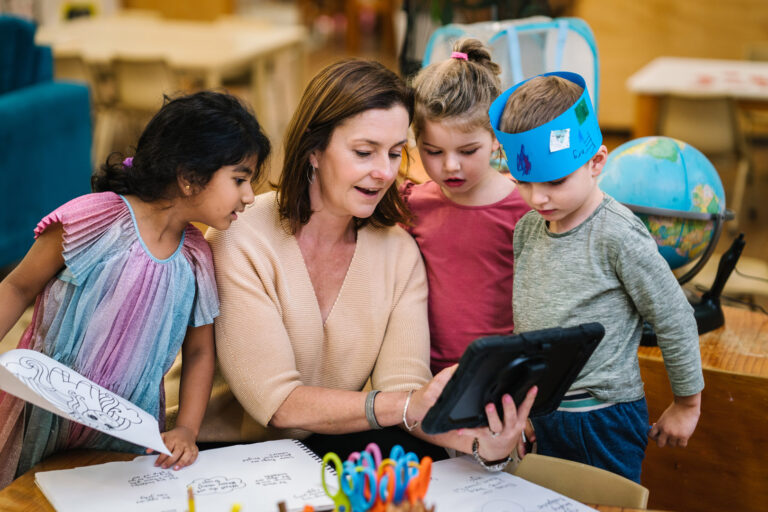
Using technology in meaningful ways to support children’s emerging language and literacy
“When literacy marries technology in an early childhood setting, a child’s early exposure to digital technologies and traditional pedagogies is braided together. Not one or the other, but an intertwining of pedagogies to support children’s emerging language and literacy.”
Laure Hislop explores the relationship between technology, language and literacy.
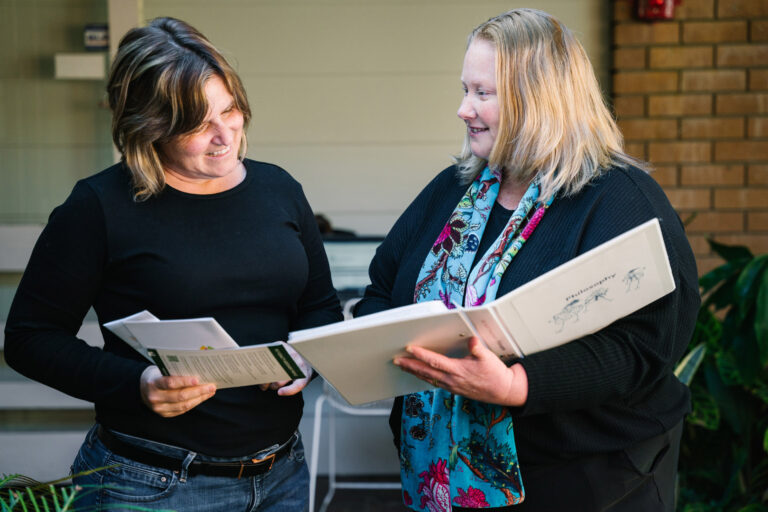
The what, why and how of philosophy
World Philosophy Day is an international day celebrated every third Thursday of November. The day is a timely opportunity to examine our service statements of philosophy.
Jan Faulkner examines what a statement of philosophy is, why we need one and how we ensure it is actioned.
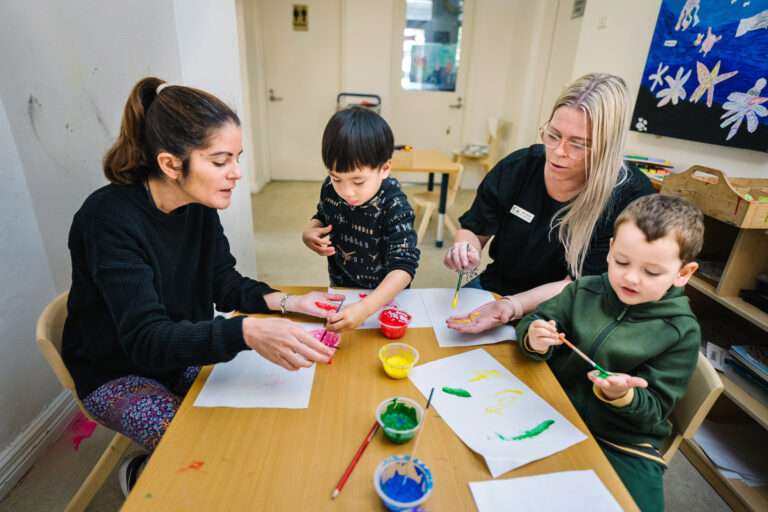
Perspectives on engaging with professional learning
“Finding time for professional learning is every early childhood educator’s challenge but I believe that further learning can also be a solution that helps us to find alternative ways of thinking about our practice.”
Educators from three services talk about the benefits of professional learning and how it has helped them find new inspiration for their work with children.
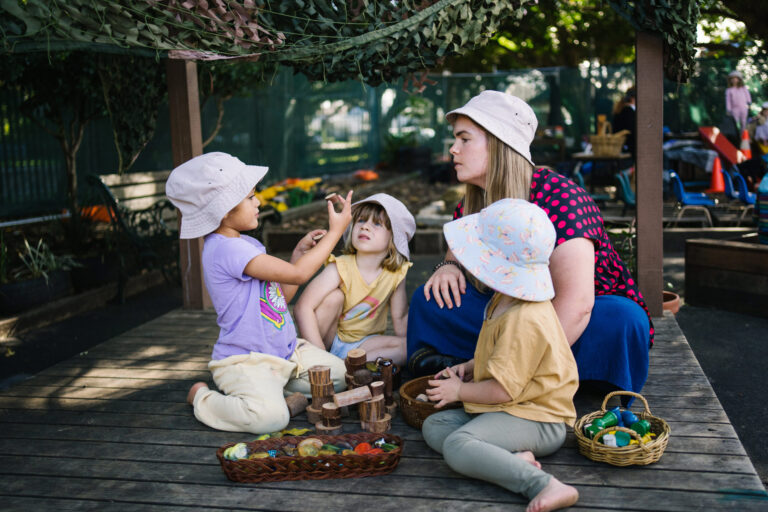
Making learning visible
Documenting children’s learning is a complex and (sometimes) confusing process. Questions of how educators can use documenting to support learning are deeply intertwined with debates surrounding ethical and political assumptions in education.
Dr Louisa Penfold interviews Harvard Project Zero’s Mara Krechevsky about documentation and making children’s learning visible.
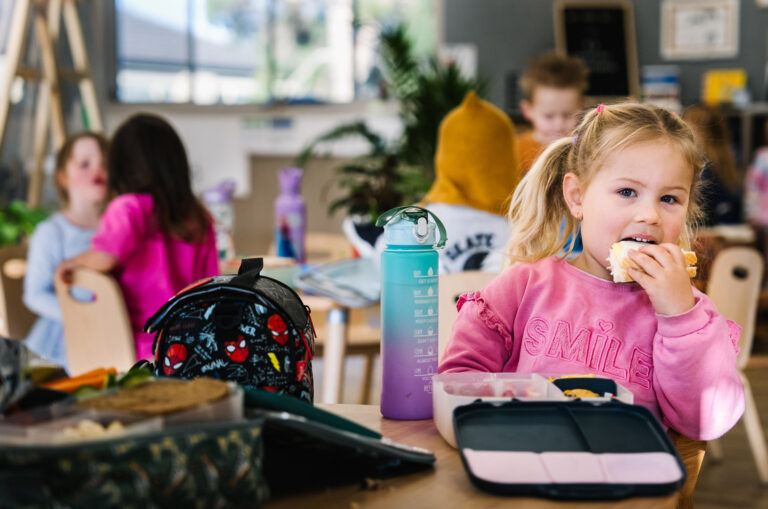
Let’s talk about food with a sustainability lens
“You as a food buyer, have the distinct privilege of proactively participating in shaping the world your children will inherit.” – Joal Salatin
Deb Watson shares about how we can support children’s growing awareness of food and food waste.
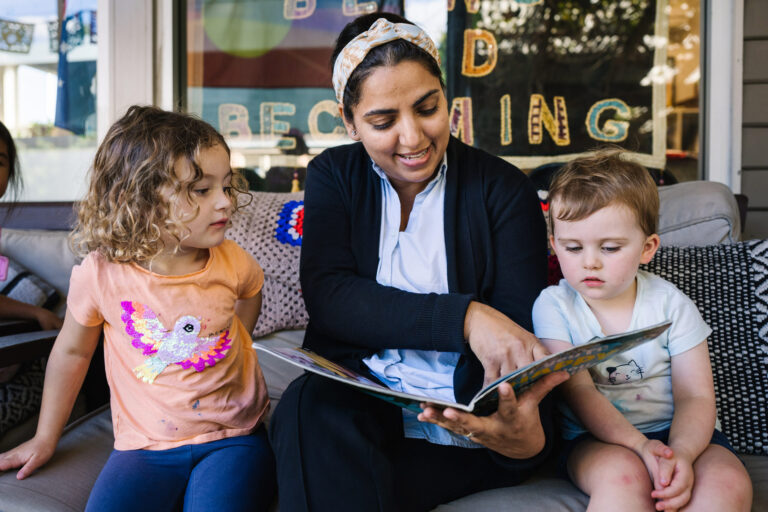
Poetry and young children
International Poetry Day is celebrated on 21 March, but did you know that the month of August is Australian Poetry month?
Fiona Harris reminisces about the importance of poetry in her life and how she uses it in her teaching.
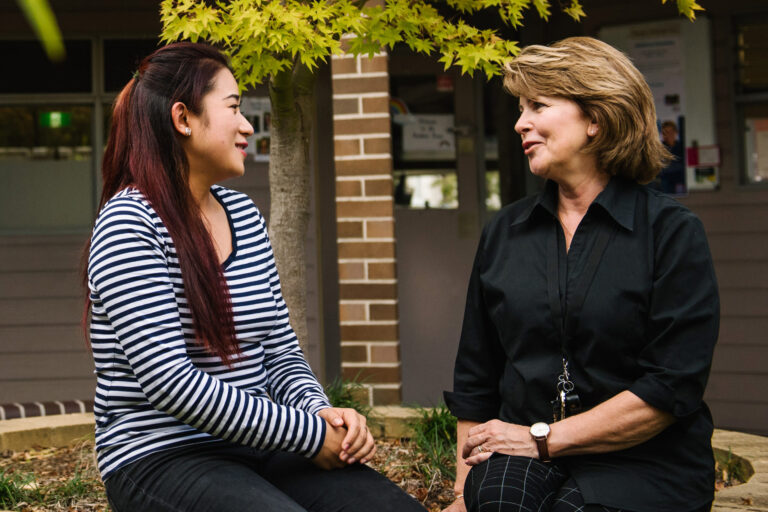
Meaningful engagement with families
One of the Exceeding themes of the National Quality Framework is that practice be shaped by meaningful engagement with families requiring educators to actively seek input, guidance and feedback from families.
Larraine Brown explores how families are unique and that we must welcome, value and accept their differences. Building relationships and engaging with families is pivotal to children feeling welcome, valued, accepted, happy and self-confident.
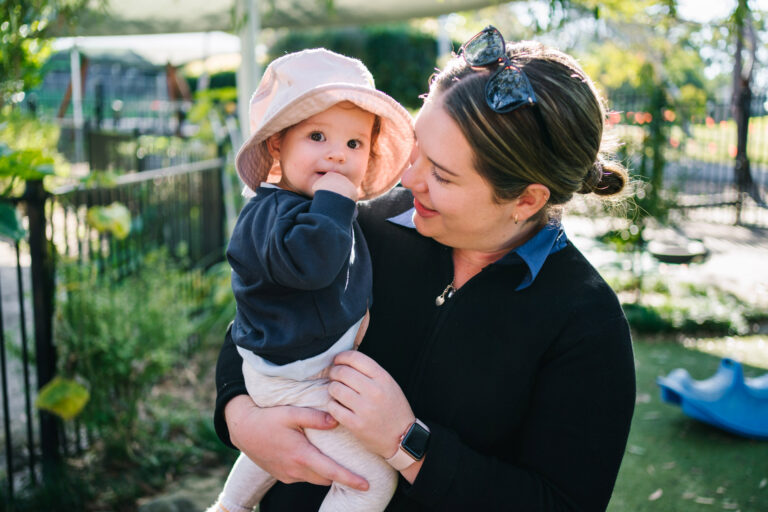
Growing connections
Children begin to form emotional and social connections with the adults who care for them in the first moments of life. Early relationship experiences with adult carers form the basis for the child’s ideas about themselves and connections with others.
Dianne Enks discusses the importance of the connections and relationships children form in the first years and the critical role of adults in supporting children navigate the social world.
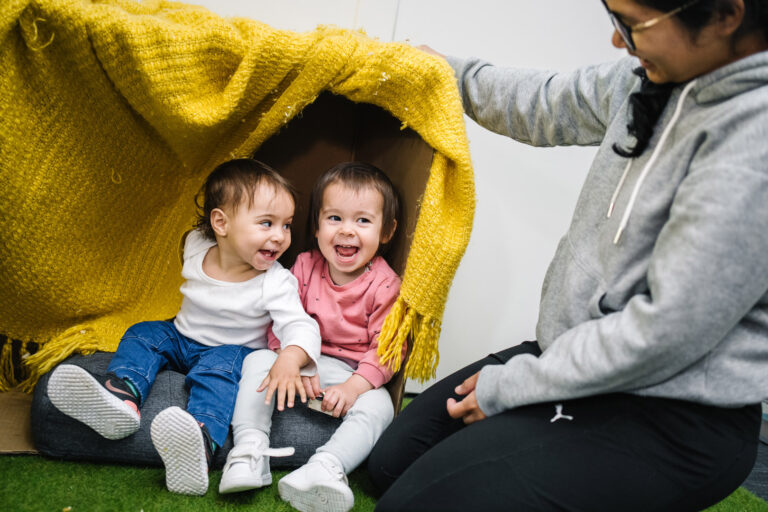
Connecting with families in infant and toddler programs
Being an infant and toddler educator requires a deep commitment to fostering authentic connection with children and their families. It requires divergent skills, intuitive communication, and attentiveness to daily details.
Fran Bastion and Caitlin Burns explore the importance of honouring child and family and fostering sustained, reciprocal relationships.
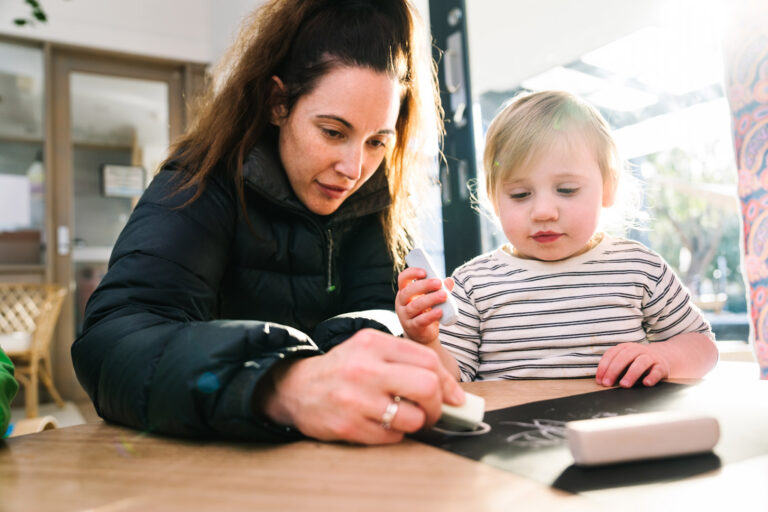
Critical reflection on practice
The National Quality Framework highlights the importance of critical reflection on our work with children. But what is the difference between “reflective practice” and “critical reflection”?
Jan Faulkner explores a definition and provides ideas for what it takes to engage in an authentic process of critical reflection.
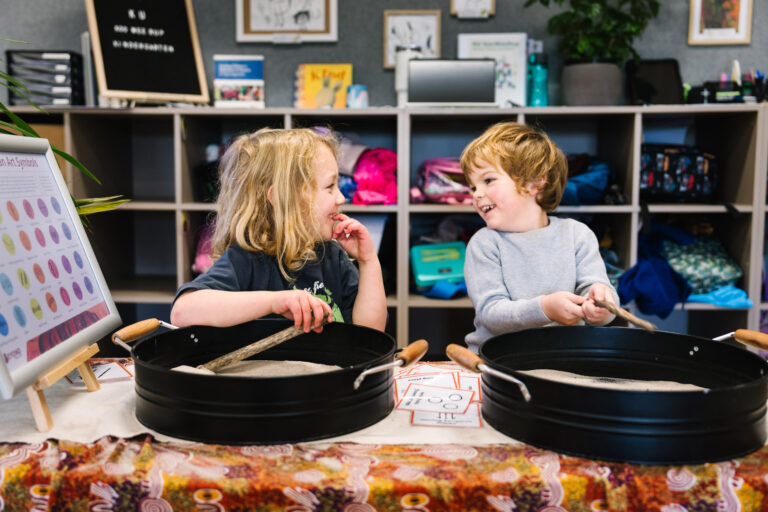
A pedagogy of friendship
Are children’s friendships undervalued in early childhood education? Is there a preoccupation with individual journeys of learning that may dismiss the importance of peer culture as an imperative to the development of the whole child inclusive of identity and wellbeing?
Fran Bastion challenges us to think deeply about relationships and friendships as a pedagogical pursuit.
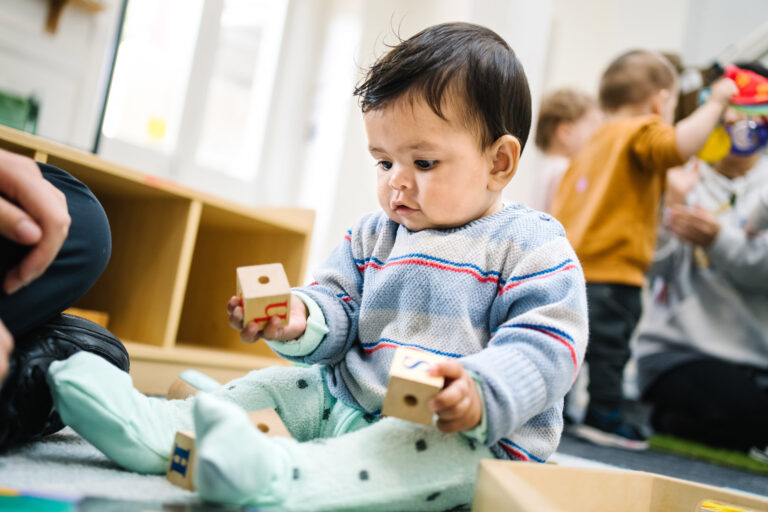
Amazing Babies
Because infants lack maturity and sophistication, we have a tendency to only see vulnerability and protection and underestimate how truly amazing they are.
Lynn Farrell shares her thoughts on how we mustn’t undervalue the power of infants and toddlers to be more than passive recipients of protection.
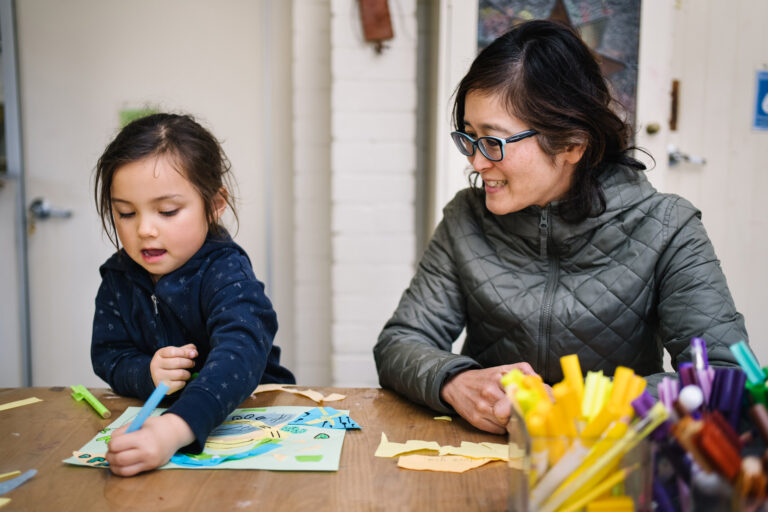
Reflecting on Assessment and Rating
As an early childhood community, we are acutely aware of the need to ensure that the rights of every child to enjoy a rich and positive early education experience is an imperative. The process of Assessment and Rating can however be daunting, overwhelming and often challenging.
Yuki Moyle and the KU Sunbeam team reflect on their positive experience of the A&R process.
